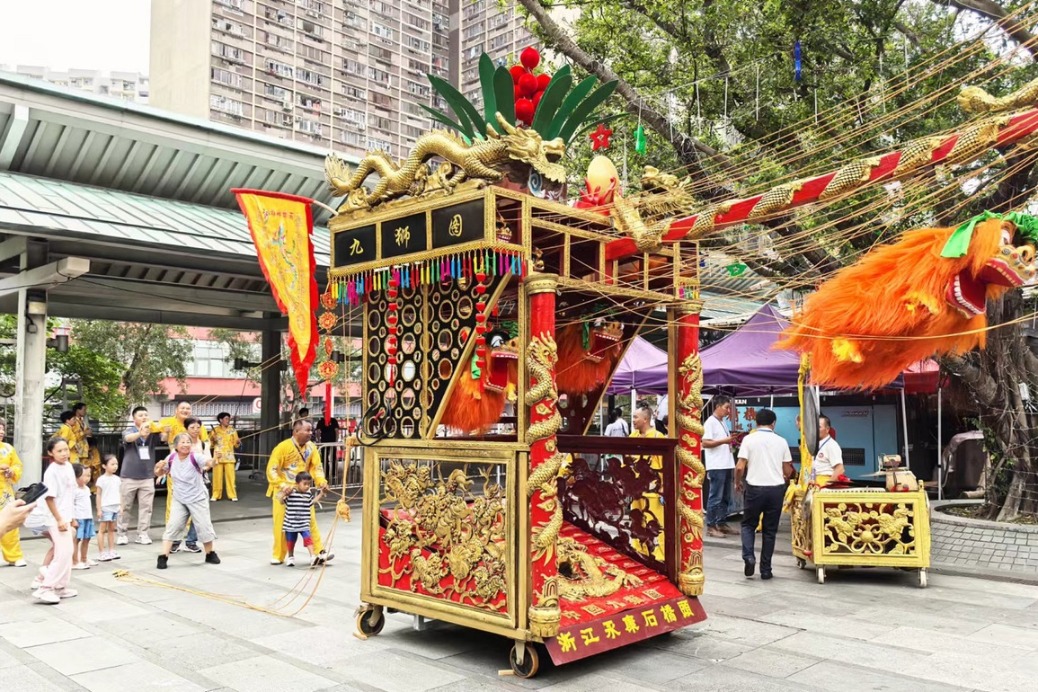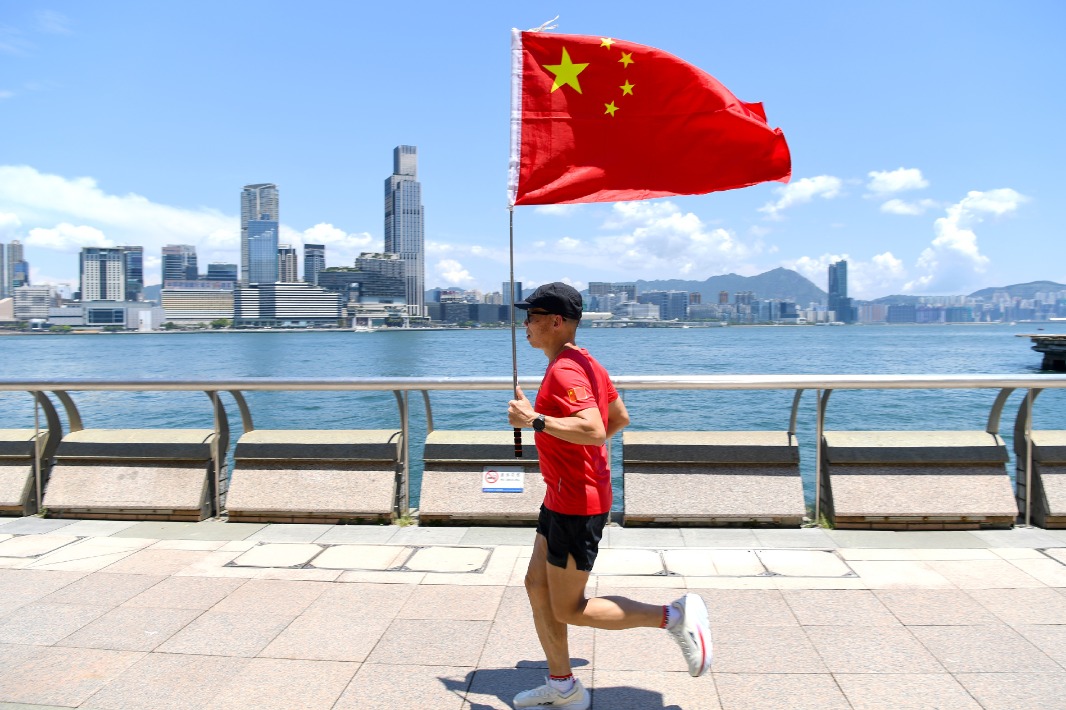Coffee shops spring up in rural retreats

In the tranquil village of Shangwangyu, nestled in the outskirts of Beijing's Huairou district, a burgeoning trend has transformed the once quiet hamlet into a bustling destination.
Amid verdant mountains and serene waters, the emergence of rural coffeehouses has drawn hundreds of city dwellers seeking respite from the urban hustle and bustle.
The small village, with a permanent population of only about 100 people, now features three coffee shops. During weekends, Heyin Cafe alone attracts more than 500 customers per day.
"The village had never seen such a flurry of activity over the past decades like it does now, with cars coming and going, and even traffic jams," said Wang Xueyong, Party secretary of the village.
Heyin Cafe, about 50 kilometers from Beijing's city center, is perched next to a lake and surrounded by mountains.
Reclining on a camping chair beneath the shade of trees, and savoring the aroma of coffee as gentle breezes waft across the waters, the scene, reminiscent of a pastoral painting, captures the essence of the attraction drawing visitors from afar.
Wei Ming, owner of the cafe, recalled that when he paid his first visit to the village three years ago, he had immediately decided to establish the rural retreat, mainly because of its unique geographical and ecological environments.
"I was captivated by the panoramic views of the lake and mountains, which allow me to truly unwind," he said.
Many customers now also resonate with Wei. Yin Yan, 32, has visited the rural cafe three times this year. "Unlike urban cafes, this place offers an expansive view of the water. Sitting by the lake, the breeze blows away the stress of the day," Yin said.
As China's coffee market continues to expand, people are shifting toward a more diversified experience. Beyond just the boost for fast-paced urban lives, more Chinese people now prefer a cup of coffee in rural settings, infused with new vitality and charm by coffeehouses nestled amid idyllic landscapes.
A customer who visited Heyin Cafe commented on a social media platform that "spending the whole afternoon relaxing and enjoying the peace brought by nature at the lakeside cafe, all worries seem to have disappeared". Others likened it to the famous Lake Como resort near Milan, Italy.
Similar sentiments echo in discussions about Meiluo Cafe, which is only 200 meters from Heyin Cafe in the same village. Founded by Wang Chunli upon returning to his hometown in September 2022, the coffeehouse occupies a sprawling courtyard along the mountain, which was once devoted to his father's guesthouse.
Dissatisfied with his father's outdated practices, the 26-year-old transformed the space into a cafe where traditional Chinese aesthetics blend seamlessly with innovative local touches, while he also added Chinese teas to the coffee menu.
"The views from the cafe are most enchanting on rainy days, with mist swirling among the mountains," Wang said, adding that some customers even arrive at 8 am and spend the entire day there.
The cafe has growing popularity among urbanites seeking solace in natural beauty. During the Dragon Boat Festival in June, the cafe generated revenue of over 70,000 yuan ($9,800) in just three days.
Such ventures, spearheaded by young entrepreneurs like Wei and Wang Chunli, have revitalized not only their own businesses, but also the village. Once home to primarily an elderly population engaged in agriculture, the village now attracts a youthful influx of visitors.
"The broad horizons and advanced ideas brought by the young people have driven the development and transformation of the village," Wang Xueyong, the Party secretary, said, noting that the popularity of the village's coffeehouses has also invigorated the local economy by bolstering sales of agricultural products and the business of accommodations and eateries.
Today, cafes can be seen in various forms in rural China, either beside lakes, near mountains, or in forests, fields and orchards. They have become a significant space for people to fulfill their desire for rural and natural experiences.
Meanwhile, rural cafes not only cater to diverse consumer tastes but also serve as catalysts for rural tourism development, reshaping the countryside and bringing new vitality to rural regions.
Two years ago, Wang Chunli's father strongly opposed his son's proposal, doubting the viability of building a coffeehouse in such a remote village.
However, two years later the steady presence of guests at the cafe has resulted in their reconciliation. "My father now always beams with pleasure whenever he comes to the cafe," Wang Chunli said, adding that he is planning to open another rural cafe in Chongqing.
Xinhua
- Poverty alleviation efforts pay off
- Journey to a greener future
- AI Broadcast: Qufu honors Confucius with cultural fest
- Global journalists, influencers explore legacy of Confucius
- Renmin University's new Tongzhou campus officially opens
- China's top political advisor urges renewed efforts in building community for Chinese nation





































